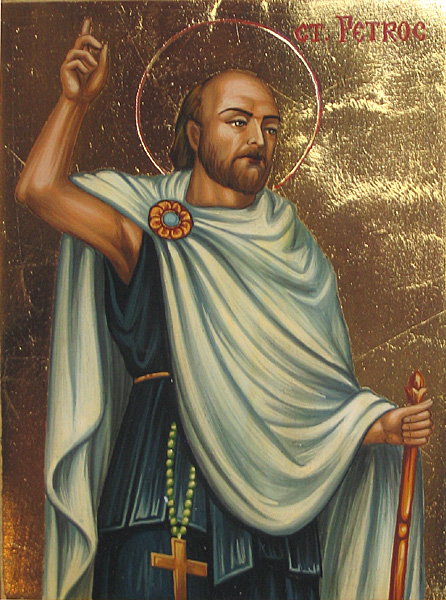
| Orthodox Outlet for Dogmatic Enquiries | Biographies |
|---|
| Saint Petroc, Celt evangelist, Abbot († 564) |
 |
A first approach to the indigenous Orthodox Saints and Martyrs of the Ancient Church who lived and who propagated the Faith in the British Isles and Ireland during the first millennium of Christianity and prior to the Great Schism is being attempted in our website in our desire to inform our readers, who may not be aware of the history, the labours or the martyrdom of this host of Orthodox Saints of the original One, Holy, Catholic and Apostolic Church of our Lord.
"The Church in The British Isles will only begin to grow when she begins to venerate her own Saints" (Saint Arsenios of Paros †1877)
|
To Saint Petroc (sometimes spelt
Petrock in English, Pedrog in Welsh and Perreux in French) (d.
564) is a 6th century Celtic Christian saint. He was born in
Wales but primarily ministered to the Britons of Dumnonia which
included the modern counties of Devon (Dewnans), Cornwall (Kernow),
and parts of Somerset (Gwlas an Hav) and Dorset. He is also
known to have ministered to the people of Brittany. His feast day is June 4.
|
Article published in English on: 2-9-2009.
Last update: 2-9-2009.